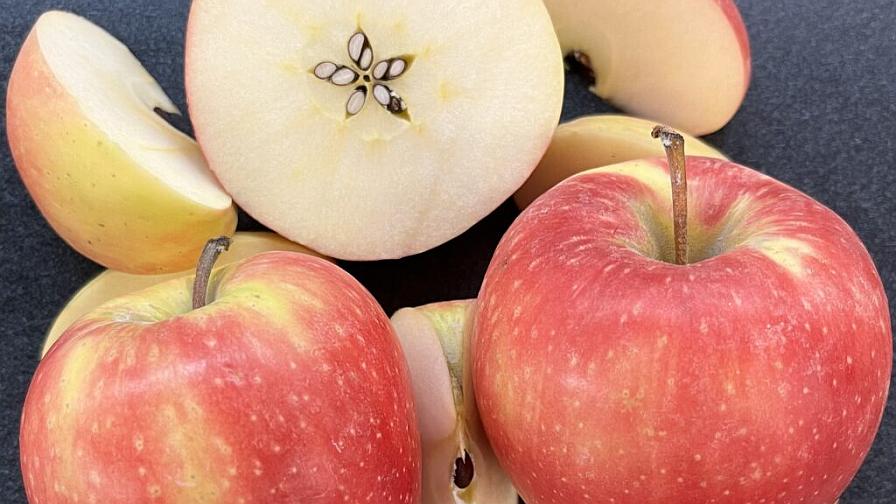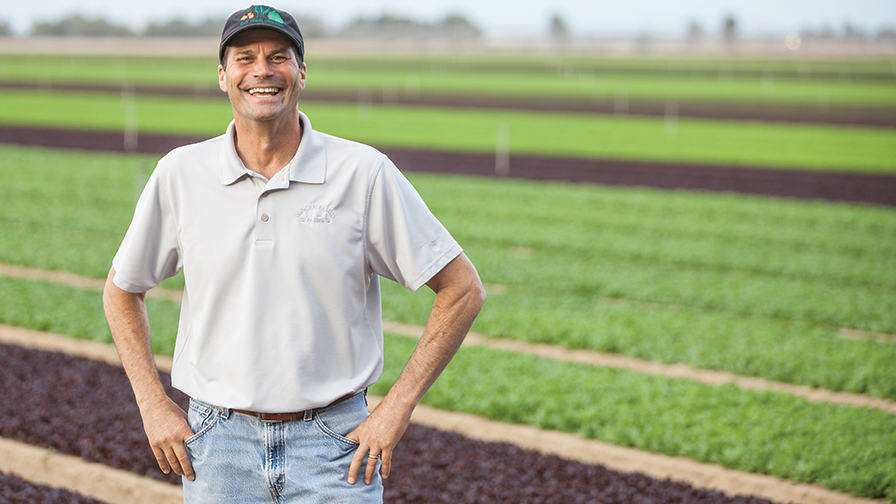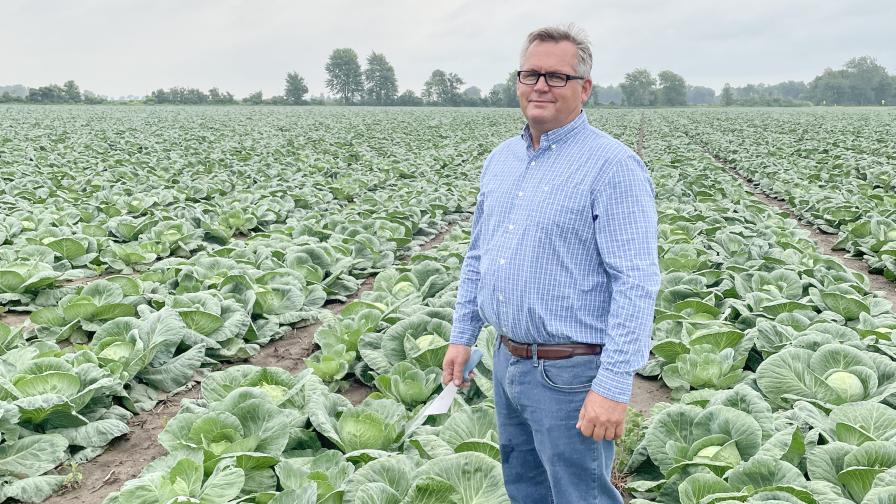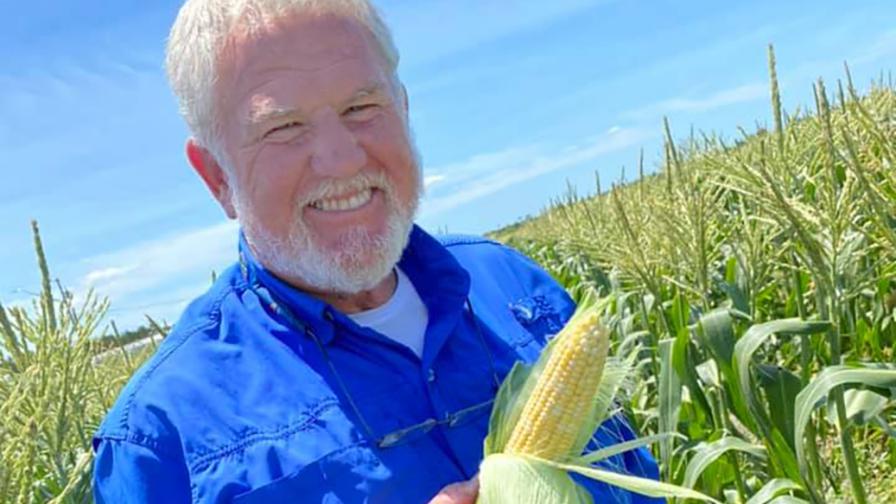Meet American Vegetable Grower’s 2021 Grower Achievement Award Winners
To celebrate the 20th anniversary of American Vegetable Grower® magazine’s Grower Achievement Award program, we’re kicking it up a notch. We’ve added regional winners for the first time and could not be happier with our inaugural West, Central, and East winners!
Congratulations to the 2021 Grower Achievement Award winners Duncan Family Farms (West), Rothert Farm Inc. (Central), and Long & Scott Farms (East).
WEST: Arnott Duncan, Duncan Family Farms, Goodyear, AZ
Since Duncan Family Farms began in 1985, Arnott Duncan has always adhered to his farm’s original mission statement, “We believe that our primary responsibility is to produce healthy, life-giving food. We are also committed to making a strong contribution to an improved environment and giving back to our community.”
The operation changed dramatically since its inception. It began with a few hundred acres of conventionally grown row crops. Today, it has more than 8,000 acres of organically grown baby leaf items, herbs, and specialty crops.
“When you start farming organically, that’s when you really start to learn how to farm,” Duncan says. “Because you want to have the lightest footprint possible, maintain a balanced ecosystem as much as possible, and work within that.”
Holding to standards and ethics, especially related to organic farming and improving the environment, forces his farming team to learn, he says. And that opens the door to further innovation and new applications of learning and technology.
For example, it developed efficient systems to create organic compost, conserve and treat irrigation water, and enrich the
soil biome.
Duncan Family Farms invested just as much in its team. Since he gains so much from the staff’s collaboration and excellence, he provides full tuition reimbursement to all his employees. Some individual team members have gone from getting their GED to completing graduate degrees. The operation also funds Duncan Family Farms Youth Career Pathways program, which helps prepare the staff’s family members for college, trade school, or entering the job market.
“I get to work with amazing people every day,” Duncan says. “And now we have a team of people who are … making each other the very best they can be. And I think because we do celebrate innovation, we know we have to keep learning. We have to keep changing so that we can stay ahead of the curve.”
CENTRAL: Trent Rothert, Rothert Farm Inc., Elmore, OH
Since he took over the seventh-generation family farm in the early 2000s, Trent Rothert has grown the family business by focusing on technological innovations that have improved efficiency and quality, including soil health and food safety, while also maintaining excellent employee development and retention.
One of the largest cabbage growers east of the Mississippi, Rothert grows on 3,500 acres in Northwest Ohio and 4,000 acres in Central Florida. He also grows iceberg and romaine lettuces, kale, tomatoes, soybeans, and corn.
Rothert explains that his focus on innovation is rooted in his desire to keep the farm sustainably viable for future generations.
“It’s our mission to keep the farm going, so we have to manage it in a way that there will be something left for the future farmers.”
Technological innovations span the entire farm operation, from field preparation (using GPS-guided instruments to precisely space every plant), to pest management (using drones that release beneficial insects), to planting (implementing the PlantTape automated transplanting system for lettuce), to harvesting (using a high-capacity tomato harvester to harvest 60 to 80 tons of ripe tomatoes per hour for processing).
While Rothert has grown the farm business through improved efficiencies, he has also grown the business by maintaining a stable workforce, relying on long-term employees to train new employees and keep the farm’s focus on food safety and quality paramount.
He explains, “We take a lot of pride in being a good employer, and we have a lot of very loyal employees, which is such a blessing for us to have. We don’t have to be training new people all the time. We’ve got a great team … we are really, truly one big family.”
EAST: Hank Scott, Long and Scott Farms, Mount Dora, FL
Located on 1,200 contiguous acres in Central Florida, about 30 miles from downtown Orlando, Long & Scott Farms grows a diverse mix of crops including cucumbers, cabbage, kale, collards, onions, and Zellwood sweet corn.
According to Hank Scott, their Great Scott Kirby cucumber is “the crop that has kept us surviving all these years.”
Scott’s focus on consistent crops as well as diversification (his farm operation also includes an annual corn maze, event venue, farm-market store, and cafe) has kept his family farm thriving through the years.
Along with moving his farm into new revenue areas, Scott concentrates on land stewardship, community service, and employee relations.
His land stewardship practices particularly focus on water detention and tailwater recovery systems as well as using crop rotation and cover crops to improve soil health.
In addition to donating produce to local food banks and gleaners from Society of St. Andrew, the farm hosts an annual “Field to Feast” dinner that benefits Second Harvest Kids Cafe.
Scott’s commitment to community service is a natural outgrowth of the farm’s diversification and good employment practices. For example, the community-focused annual corn maze highlights the farm’s production of locally famous Zellwood sweet corn while also providing first-time jobs for teenagers who often stay on to become long-term employees. Scott comments, “Two of my top employees came from the maze workers.”
Scott’s management style grows from the idea that good employees “buy in and feel a part of the farm.” He develops that attitude among his farm team by “treating them right, letting them make their decisions, and work the way they want to work as long as they meet the parameters I give them. That improves the farm’s efficiency, quality, and bottom line.”
As one employee puts it, “I have worked here on the farm for going on 10 years and absolutely love my job. Hank’s sister, brother, two children, and his granddaughter all work on the farm, along with 20 full-time employees and an additional 30 to 90 seasonal workers. We may not all be family, but he treats us as if we were.”













